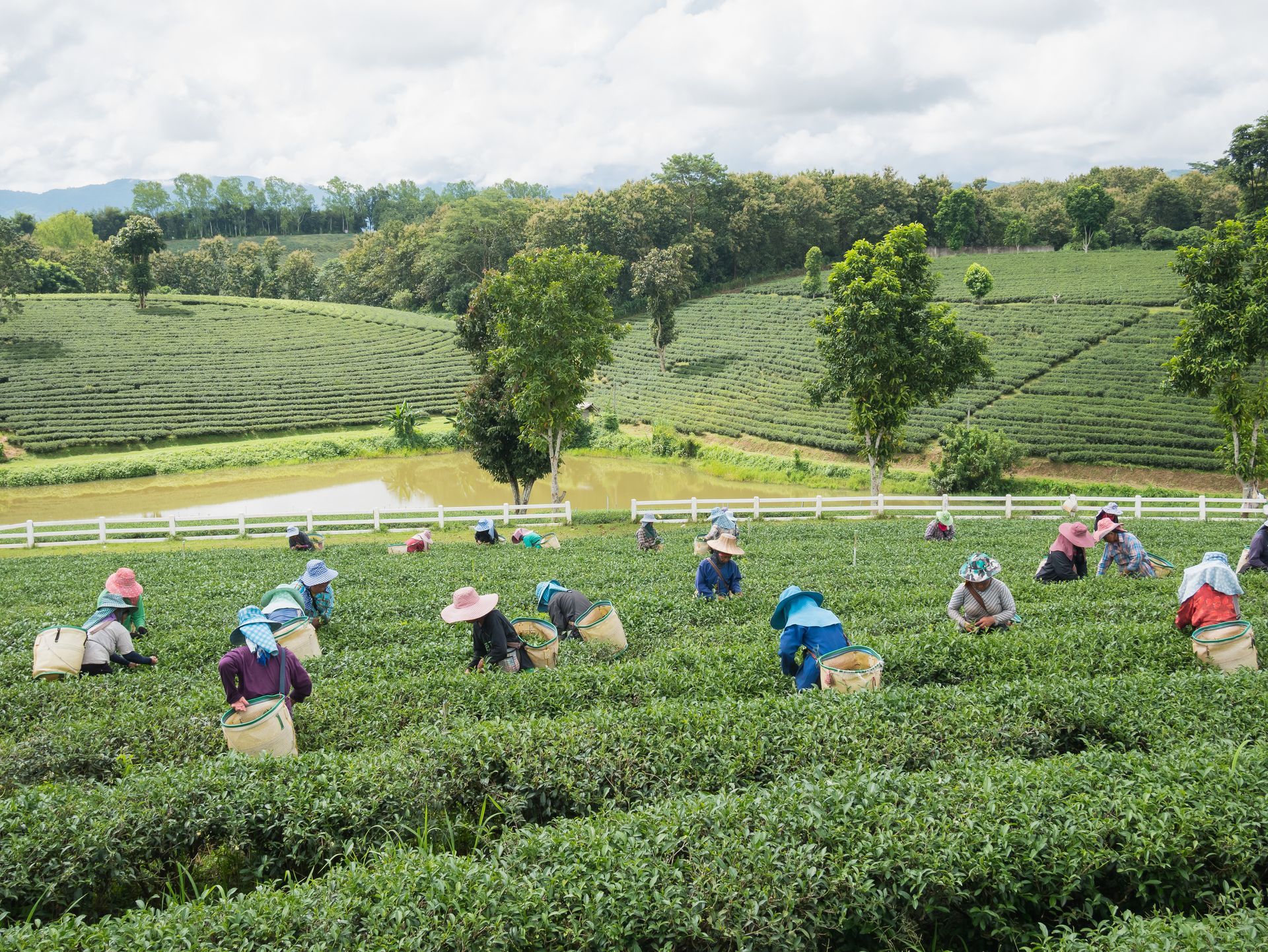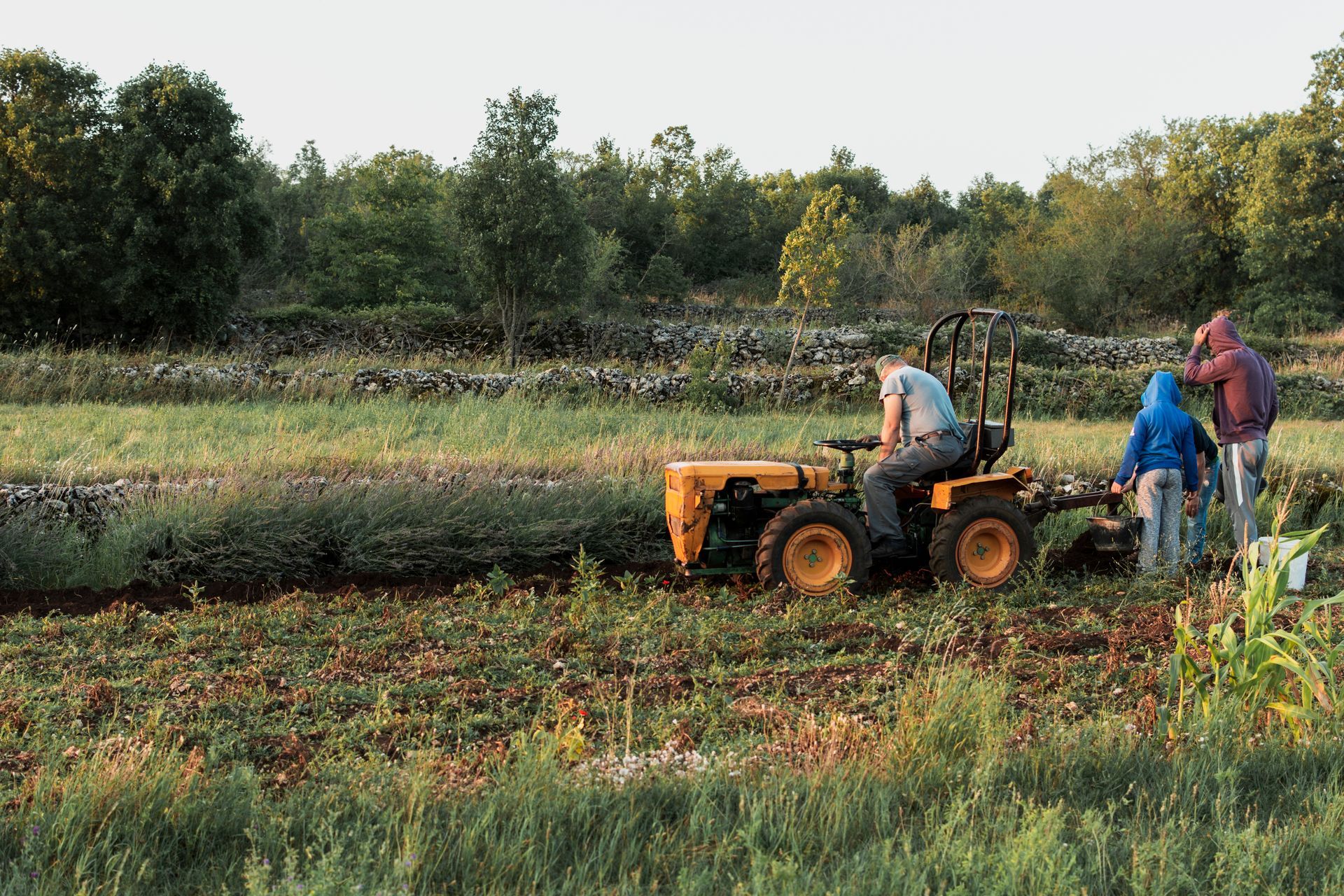Harvesting Wellness: Diabetes Care for Farmers

You would think that Diabetes is an urban disease, because of the abundance of sugar and highly processed food in cities. Interestingly, farmers in rural areas suffer from diabetes just as much as urban dwellers.
Rural areas are perceived to have a healthier lifestyle because they have better access to fresh food, fresh air, and nature. However, farmers in rural communities face heightened vulnerability to diabetes due to prolonged exposure to agrochemicals, irregular work hours, and limited access to healthcare services.
Recognizing farmers' pivotal role in our food supply, proactively addressing this issue is essential. The implications of diabetes extend far beyond individual health concerns. When left unmanaged, diabetes poses severe health risks, impacting not only individuals but also their families and the broader community.
Empowering farmers with knowledge and tools to manage diabetes amidst their demanding work is crucial for their well-being and the sustainability of our agricultural systems.
By understanding and supporting farmers in their health journey, we ensure a resilient and thriving farming community.
Understanding Diabetes
Diabetes is an ongoing global concern that has affected a large chunk of today's population, including those in farming communities. The World Health Organization (WHO) has reported about
422 million people worldwide have diabetes, and it has been steadily increasing over the past few decades.
This complex metabolic disorder is characterized by high glucose levels in the bloodstream (sugar) and requires a deep understanding of effective management and prevention.
Different types of diabetes come with unique symptoms and treatments, such as diabetes eye symptoms, but they're equally serious. Despite their variations, all share a common risk: elevated blood sugar levels that can lead to severe complications if not managed.
| Type | Symptoms | Causes | Treatments |
|---|---|---|---|
| Type 1 Diabetes | Increased Thirst Fatigue Unexplained Weight Loss Blurred Vision | Autoimmune destruction of pancreatic cells responsible for producing insulin | Insulin Therapy Blood Sugar Monitoring Healthy Diet Regular Exercise |
| Type 2 Diabetes | Increased Thirst and Urination Fatigue Blurred Vision Slow Wound Healing | Insulin Resistance Genetic Predisposition Obesity Sedentary Lifestyle | Lifestyle Modifications Oral Medications Insulin Therapy |
| Gestational Diabetes | Similar to type 2 diabetes symptoms | Hormonal changes during pregnancy | Blood sugar monitoring Healthy diet Physical activity Insulin therapy |
Some individuals may experience diabetes without noticeable symptoms, underscoring the importance of regular screenings, especially among high-risk groups like farmers.
Risk Factors for Diabetes in the Farming Population
Although farmers play a crucial role in society by supplying food and sustenance, they encounter distinct challenges that increase their susceptibility to diabetes. Recognizing these factors is essential for implementing tailored interventions and enhancing the health outcomes of farming communities.
Physical Demands and Sedentary Lifestyle
The rigorous demands of agricultural tasks require physical exertion, but prolonged periods of inactivity during downtime can still contribute to metabolic imbalances. These factors collectively elevate the risk of diabetes among farmers.
Irregular Eating Patterns
The unpredictable nature of farming schedules often leads to irregular meals, which commonly consist of convenient, processed foods high in sugars and fats. These dietary patterns disrupt blood sugar levels and promote insulin resistance, further increasing the risk of diabetes among farmers.
Limited Access to Healthcare Services
Farmers in rural areas face challenges getting healthcare and diabetes screenings due to distance and financial constraints. This makes it harder to diagnose and manage diabetes effectively.
Exposure to Agrochemicals and Pesticides
It is common practice for farmers to come into contact with agrochemicals and pesticides when cultivating crops or controlling pests. Research suggests that exposure to these substances may disrupt metabolic pathways, leading to inflammation and insulin resistance.
Chronic Stress and Mental Health Challenges
The unpredictable nature of farming, combined with market pressures, contributes to chronic stress, which can lead to insulin resistance and Type 2 diabetes.
The unique challenges faced by farmers contribute to an increased risk of diabetes, highlighting the urgent need for targeted interventions and support. Acknowledging these challenges and executing comprehensive strategies can lessen the impact of diabetes and advocate for a healthier future for farmers and their families.
Challenges Faced By Farmers with Diabetes
Living with diabetes presents unique challenges for farmers, whose livelihoods depend on physical labor and demanding schedules. Let’s explore farmers' obstacles to managing diabetes and offer insights into overcoming these challenges.
Balancing Farming Duties and Diabetes Management
Farmers find it challenging to balance their farming tasks with managing diabetes, which disrupts their meal and medication routines due to unpredictable work hours and weather conditions.
Access to Diabetes Care and Support Services
Limited healthcare access in rural areas poses a barrier for farmers managing diabetes. Distance, costs, and time constraints hinder regular check-ups, medication access, and diabetes education. Fortunately, healthcare institutions like Rural Health Network provide accessible and tailored support specifically designed to meet the needs of rural communities.
Dietary Challenges and Food Insecurity
While Farmers have access to fresh food during harvest season, the situation is different during the off-season. Farmers can suffer from malnutrition during the off-season due to a lack of access to nutritious food and financial constraints. This leads to compromised glycemic control and increased complications due to food insecurity in rural communities.
Psychological Impact and Stress Management
Diabetes impacts farmers' mental well-being due to the stress of managing the condition alongside farm pressures, contributing to anxiety, depression, and burnout, affecting overall quality of life.
Stigma and Social Support
The stigma surrounding diabetes deters farmers from seeking support or disclosing their condition, leading to isolation and emphasizing the need for inclusive and supportive environments within agricultural communities.
Farmers managing diabetes encounter multifaceted challenges that impact their daily lives and well-being. We must foster environments of understanding, support, and inclusivity, ensuring that no farmer faces the burden of diabetes alone. Together, we can foster a future where farmers flourish in their health and livelihoods.
Practical Tips for Diabetes Care on the Farm
Managing diabetes while working on the farm presents unique challenges, but farmers can effectively control their condition and maintain their health with the right strategies and support. Rural Health Network offers specialized support and practical tips to farmers facing diabetes challenges on the farm. With their guidance, managing diabetes effectively becomes more attainable.
Establish a Routine
Consistency is vital to diabetes management. Set regular times for meals, medication, and blood sugar monitoring to maintain stable blood sugar levels throughout the day, even amidst the unpredictability of farm work.
Plan Balanced Meals
Your diet should prioritize nutrient-rich foods such as fruits, vegetables, whole grains, and lean proteins. Prepare your meals in advance and pack nutritious snacks to ensure you have nourishing options readily available during busy farm days.
Stay Hydrated
Dehydration can worsen diabetes symptoms and affect blood sugar levels. Drink ample fluids throughout the day, especially in hot weather or during demanding farm tasks.
Incorporate Physical Activity
Participate in consistent physical exercise to regulate blood sugar levels and improve overall health. Find exercise opportunities on the farm, such as walking, gardening, or manual labor, and strive for at least 30 minutes of moderate-intensity activity most days of the week.
Environmental Protection and Diabetic Foot Care
Wear protective gear and wash hands promptly after handling chemicals to minimize exposure to agrochemicals and pesticides. Additionally, prioritize diabetic foot care by wearing appropriate footwear to prevent injuries, checking feet regularly for cuts or blisters, and keeping feet clean and moisturized.
Monitor Blood Sugar Levels
Monitor blood sugar levels regularly throughout the day, especially before and after meals, exercise, and strenuous farm work. Record your readings to monitor trends and recognize any fluctuations that may require adjustments to your diabetes management plan.
Communicate with Healthcare Providers
Stay in touch with your healthcare team or a
specialist in diabetes and keep them informed about your diabetes management efforts and any challenges you encounter on the farm. Work together to develop a personalized diabetes care plan considering your unique needs and lifestyle.
Prioritize Self-Care
Make time for self-care activities to reduce stress and promote overall well-being. Normalize relaxation methods like deep breathing, meditation, or immersing yourself in nature to manage stress levels and support mental well-being effectively.
Seek Support from Peers
Connect with other farmers living with diabetes for peer support and encouragement. Share experiences, tips, and strategies for managing diabetes while working on the farm, and draw strength from the camaraderie of fellow farmers facing similar challenges.
Stay Informed and Educated
Stay updated on the most recent advancements in diabetes management and agricultural health. Attend workshops, webinars, or community events focused on diabetes education and agricultural safety to expand your knowledge and skills.
Personalized Diabetes Care in Newman, California
Your health and well-being are always our utmost priority. With our dedicated team by your side, you're never alone on your journey to better health.
Rural Health Network, Inc. is committed to empowering farmers to take charge of their health and well-being. With our
chronic care management, we're here to help you manage diabetes and thrive in your vital role as a provider.
Don't let diabetes hold you back. Take the first step towards better care today by contacting Rural Health Network, Inc. Together, let's cultivate a healthier future for farmers everywhere.
Contact us at (209) 862-3604 or
email us to start your improved health and wellness journey.
No one will be denied access to services due to an inability to pay. There is a discounted sliding fee schedule available based on family size and income.
Rural Health Network Inc | All Rights Reserved.










